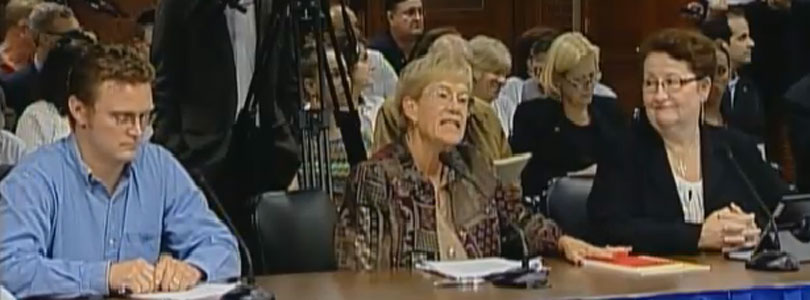The Good of Public Education
What is “public education”? More specifically, what is the social good that we seek to achieve to justify forcibly taking money from our neighbors (at every layer of government) in order to finance the education of other people’s children?
That second question may sound provocative, but it’s not meant to be. Rather, it’s descriptive. Both questions got some airing at the hearing of the Rhode Island House Finance Committee on bill H6131 (video here, at time marker 41:30 ), with elaboration during my appearance on the Dan Yorke Show the next day (audio here).
At its core, the principle of using tax dollars for education — the good that we hope to achieve — isn’t to support a school system that is branded with the Rhode Island government brand. It’s to have an educated public. It’s to do what we can to ensure that every child has the basic knowledge necessary to be economically productive and civilly engaged, allowing each to achieve his or her full academic potential, given individual aptitude and circumstances.
This is a critical distinction. If the purpose of collecting tax dollars is to fund an organization operated by government agents, then the objective is to get those schools to serve as large and broad a student population as possible and to give them as much money as they need (or say that they need) to provide a serviceable education. If the purpose of collecting tax dollars is to fund the education of every child, then the objective is to fund the most academically effective, financially efficient schools serving the particular students who attend them, no matter who operates them.
The only reason to emphasize “public schools” over “education of the public” is to maintain some sort of nominal (probably theoretical and definitely debatable) control over how those schools operate and what they teach. Two points speak against that reasoning.
First, as we’re seeing with all of the battles over accountability — standardized testing, teacher performance reviews, and so on — it isn’t at all clear that we, the public, have any real control over this system. And the government’s solution appears to be to keep moving authority farther and farther away from the families with the most invested in the schools and toward higher tiers of government, where abstract theory and political interests prevail.
Second, beginning with the premise that government-run schools should be arranged to suit the needs of every student who could conceivably enter their halls, while balancing the civic and ideological preferences of taxpayers, can’t help but sublimate the primary and essential goal of educating people. Children have different needs — within and beyond learning styles. As important, our democratic means of controlling a government-school system are muddied with an ever-expanding list of other things we want government to do. When we vote for a governor, for example, we’re not just basing our choice on his or her likely appointees in the education system, but weighting that against every single other policy and project that he or she is likely to undertake.
There can be no doubt that we need a sort of a default system funded through tax dollars, but how we fund and populate those default schools doesn’t have to be the unaccountable system that we’ve all become used to.
At the hearing, lobbyist James Parisi, from the Rhode Island Federation of Teachers and Health Professionals union, noted that the state’s government-run schools are facing budget crunches and eliminating programs — charging for sports, looking for ways to increase fees, and all that. Under no analysis can the problem be said to be a reduction of funding. One can also not say that there has been a huge wave of new students.
The money crunch is a function of the way the government structures its workforce and operations. That means the unions. That means the state and federal mandates that suit the priorities of elected (and unelected) government officials.
Such a system is fine, as an operational experiment, but it simply can’t be the one model that must survive as a monopoly without competition. If we think of the undiluted good of education as education, we must allow differences and competition not just from school to school within a government system, but from the entire way the government operates its schools.
One can always argue that parents who make enough extra effort in the government schools at least have a chance to make up for the ways in which the organizations don’t answer the needs of their children. But that’s a bit like saying that people who want to protect their cars from potholes can drive at half the speed limit, or that businesses can still navigate the labyrinth of regulations if they just give up more of their free time.
That shouldn’t be the standard. Instead, parents who want to be involved should be enhancing their children’s lives beyond the basics. And by the same token, children whose parents can’t or won’t be as involved shouldn’t be condemned to a system that assumes that they will be.
The right question is how we, as a society, marshal our resources to create the best incentives for students, parents, teachers, and communities — in and out of government.



